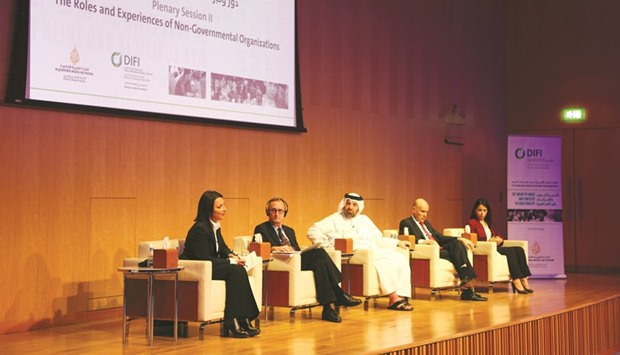The Doha International Family Institute (DIFI) Conference on Family Research and Policy concluded yesterday after shedding light on numerous topics relating to the breakdown of the family structure as a result of wars and conflicts.
Leading local and international researchers and policymakers examined the most effective means of preserving the family unit during times of instability and civil unrest, the experience and changing role of NGOs in war zones, post-war family transition and resettlement of refugees in the region.
Azza Abdelmoneium, senior associate researcher, DIFI, focused on the plight of internally displaced children in Khartoum in Sudan during the ‘Impact of Wars and Conflicts on Women, Men and Children’ parallel session.
“These children are displaced due to several reasons including migration, breakdown of families, conflicts and natural disasters, and are then forced to work under very harsh conditions and are subject to many forms of violence from their employers.”
“Only through raising awareness of these issues, and through further research and education, can we hope to influence and inform future policies to protect the rights of children in conflict areas,” Abdelmoneium said.
Delegates from Save the Children, Arab Renaissance for Democracy and Development and Amel Association International tackled how the changing nature of both conflict and humanitarian relief has transformed the role of non-governmental organisations from the traditional role of mitigating the effects of conflict into performing new roles, including conflict prevention and peace building efforts. In the ‘Health Consequences of Wars and Conflicts’ parallel session, guest speaker Jocelyn DeJong, American University Beirut, delivered a presentation entitled, ‘Effects of Conflict on Reproductive, Maternal, Neonatal, and Child Health – A Case Study’.
DeJong explored the lack of data in addressing the health challenges in conflict areas while noting how these can be overcome by encouraging collaborations across humanitarian agencies, government bodies and academic institutions.

Panellists in the first plenary session yesterday, discussed the roles and experiences of non-governmental organisations during wars and conflicts.
